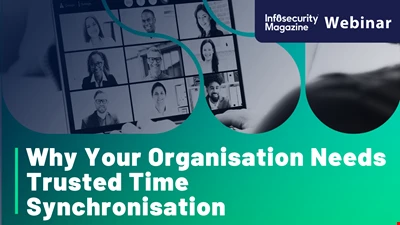Infosecurity News

North Korea's APT37 Expands Toolkit to Breach Air-Gapped Networks
The security researchers from Zscaler ThreatLabz have also discovered five new tools deployed by the North Korean hacking group

UK Vulnerability Monitoring Service Cuts Unresolved Security Flaws by 75%
The UK government says its new Vulnerability Monitoring Service has cut unresolved security flaws by 75% and reduced cyber-attack fix times from nearly two months to just over a week

‘Project Compass’ Cracks Down on ‘The Com’: 30 Members of Notorious Cybercrime Gang Arrested
International law enforcement operation led by Europol targets network of teenagers and young adults involved in ransomware attacks, extortion and other crimes

Aeternum Botnet Shifts Command Control to Polygon Blockchain
New botnet Aeternum shifted C2 operations to Polygon blockchain, complicating takedown efforts

Darktrace Flags 32 Million Phishing Emails in 2025 as Identity Attacks Intensify
2025 saw 32M phishing emails, with identity threats surpassing vulnerabilities

Exploitable Vulnerabilities Present in 87% of Organizations
Datadog report reveals two-fifths of services are affected by exploitable bugs

UK's Data Watchdog Gets a Makeover to Match Growing Demands
The UK’s Information Commissioner's Office is about to ditch single-leader model for CEO and board in a major shake-up

Google Disrupts ‘Prolific’ and ‘Elusive’ China-Linked Global Hacking Campaign
UNC2814 hit 53 victims in 42 countries with novel backdoor in decade long cyber espionage operation

Global Cyber Agencies Urge Immediate Patching of Cisco SD-WAN Zero Day
The US and allies are urging Cisco Catalyst SD-WAN customers to hunt for signs of exploitation

44% Surge in App Exploits as AI Speeds Up Cyber-Attacks, IBM Finds
IBM's 2026 X-Force report reveals 44% rise in cyber-attacks on public apps, driven by AI and flaws

Malicious NuGet Package Targets Stripe Developers
Malicious NuGet package mimicking Stripe's library targeted developers

Former Defense Contractor Boss Gets 7+ Years for Selling Zero Days
A former general manager of a US defense contractor has been sentenced after selling zero days to Russia

ICO’s £14m Reddit Fine Highlights Age Check Privacy Concerns
The UK’s ICO has fined Reddit over £14m for failing to use children’s personal information lawfully

Cost of Insider Incidents Surges 20% to Nearly $20m
DTEX claims insider incidents cost $19.5m in 2025, with employee negligence most expensive

Multifaceted Phishing Scheme Deceives Bitpanda Customers
Phishing attack mimicking Bitpanda targets users, harvesting credentials and personal information

North Korean Lazarus Group Expands Ransomware Activity With Medusa
Ransomware Medusa linked to North Korean hackers targets US healthcare amid ongoing attacks

AI Accelerates Attacker Breakout Time to Just Four Minutes
ReliaQuest claims AI has reduced breakout and exfiltration time to under 10 minutes

Chinese AI Firms Hit Claude with Distillation Attacks, Anthropic Warns
Anthropic accused DeepSeek, Moonshot and MiniMax of illicitly using Claude to steal some of the AI model’s capabilities

AI-powered Cyber-Attacks Up Significantly in the Last Year, Warns CrowdStrike
CrowdStrike Global Threat Report warns how adversaries are leveraging AI to make campaigns more efficient and more effective

Shai-Hulud-Like Worm Targets Developers via npm and AI Tools
Supply chain worm mimicking Shai-Hulud malware spread via malicious npm packages, targeting AI tools has been identified by security researchers



